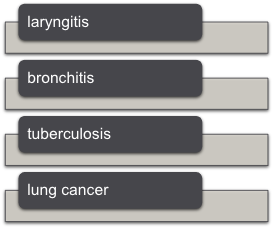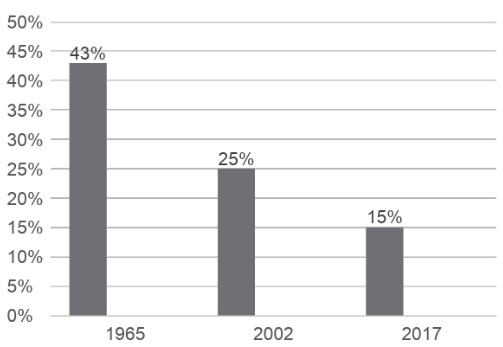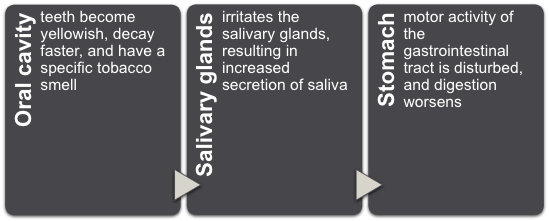Introduction
In today’s world, many people are affected by bad habits. Smoking is the most famous and prevalent habit worldwide, which is not easy to eliminate. Since everyone is aware of the dangers of smoking from an early age, the best solution is not to start. Nevertheless, people often tend to do this, thinking they can quit anytime.
Another one, no less harmful, is alcoholism. Getting used to it, a person can no longer refuse, and an addiction that develops cannot permanently be cured. Of course, it is clear to everyone that nobody is perfect.
Everyone has their flaws and preferences. If everyone thinks about what they are doing and chooses the right path in life – their example will prevent others from choosing the wrong one.
Several habits are harmful to the human body. They prevent a person from developing both mentally and physically. Many of them are addictive; that is, a person knows about the harm of the habit but cannot get rid of it because it brings short-term pleasure or relief. Among the main reasons for the emergence and spread of habit can be called:
- Social coherence. Suppose a specific pattern of behavior is accepted in a group to which a person belongs. In that case, one needs to follow it to show the status.
- Satisfaction. One of the main reasons why people engage in bad habits is pleasant feelings, from well-being and relaxation to mystical euphoria.
- Curiosity.
- Getting rid of physical stress.
- Unsettledness in life.
Tobacco Smoking Harm
Tobacco smoking is one of the risk factors for several serious diseases. Tobacco smoke irritates the mucous membranes of the larynx, trachea, and bronchi. Tobacco tar, a concentrate of liquid and solid products of combustion and dry distillation of tobacco, settles on the walls of the respiratory tract and accumulates in the mucous membranes. Constant smoking leads to the development of chronic laryngitis and bronchitis.
The resistance of the lungs among smokers to various infectious diseases decreases. Tobacco smoke, containing carcinogenic hydrocarbons, and radioactive polonium, undoubtedly contributes to lung cancer (Figure 1). Although the percentage of people who have been smokers since they were 18 has been decreasing over the years, it is smokers who die from lung cancer in the vast majority of cases (Figure 2). The frequency of lung cancer in any country is directly proportional to the amount of tobacco consumed and the duration of the smoking habit (Bade & Cruz, 2020).


Body Response to Nicotine
The toxicity of nicotine has been felt by everyone who has taken the first cigarette in their mouth. No one can finish the first cigarette. It is hindered by dizziness and nausea and sometimes by unpleasant sensations, such as intense salivation, noise in the head, headache, palpitations, weakness, trembling hands, vomiting, and diarrhea.
The body gradually adapts to nicotine, and smoking does not cause unpleasant sensations. Although the poisoning of the body continues, it does not manifest itself for a long time. It is much easier to start smoking than to quit. So, it is better not to start.
The Effect of Smoking on the Body
When smoking, the gastrointestinal tract suffers significantly. The harmful effect of tobacco smoke begins to manifest itself already in the oral cavity. A smoker’s teeth become yellowish, decay faster, and have a specific tobacco smell (Wang et al., 2022). Tobacco smoke irritates the salivary glands, resulting in increased secretion of saliva, which smokers partially spit out and partially swallow.
Saliva saturated with harmful substances passes through the esophagus and enters the stomach and intestines.
The motor activity of the gastrointestinal tract is disturbed, and digestion worsens. Chronic gastritis, peptic ulcer disease of the stomach and duodenum, and cholecystitis develop more often in those who smoke. Furthermore, even small doses of nicotine reduce the liver’s detoxifying function. Medical science has convincingly proven the relationship between smoking and the oral cavity, esophagus, and stomach cancer (Figure 3).

Negative Effects of Alcohol
Thanks to its ability to dissolve fatty substances, alcohol freely penetrates through the membranes of brain cells and disrupts vital processes in them. When oxidized, alcohol takes oxygen from the cells, and the brain is most sensitive to oxygen starvation. Therefore, the central nervous system primarily suffers from the effects of alcohol (Mehla et al., 2020).
One of the most harmful habits that cause severe damage to a person’s health and well-being is the abuse of alcoholic beverages. Fighting drunkenness and alcoholism is currently an important economic and social problem. Alcohol undermines individual health, leads to the degradation of a person, adversely affects public health, and negatively affects all aspects of public life – the economy, everyday life, morals, and people’s consciousness.
Stages of Alcoholism
Several stages can be distinguished from a person’s first encounter with alcohol to the final stage of alcoholism.
At first, it is episodic drinking, mostly during holidays. Alcohol abuse or drunkenness includes excessive consumption of alcoholic beverages.
Later, alcohol addiction or alcoholism develops, a chronic disease characterized by a person’s pathological need for alcohol. The main symptoms of the first or initial stage of alcoholism are increased tolerance to alcohol, loss of a sense of control, and disappearance of the protective vomiting reflex. The presence of alcohol withdrawal syndrome indicates severe forms of the disease.
In the second stage of the disease, alcoholic psychoses also develop, acute alcoholic hallucinosis and delirium.
In the third stage of alcoholism, the need for alcohol becomes the same as the need for food and sleep. Abstinence syndrome is accompanied by severe disorders of cardiovascular activity, hemodynamic phenomena, and liver failure, often resulting in death.
The Effect of Alcohol on the Body
Alcohol adversely affects the heart and blood vessels and disrupts the activity of the nerve centers that regulate the function of the cardiovascular system. Under the influence of alcohol, blood vessels expand for a short time, and then their spasm occurs.
Alcohol has a toxic effect on the heart muscle, contributing to the development of degenerative processes in it. It is is a particular danger for the female body. Women who abuse alcoholic beverages wither faster, their skin becomes wrinkled, their voice is rough, and their body shapes acquire the characteristics of a “male type.” Deviations from the sexual sphere are observed: the menstrual cycle is disturbed, and the sexual drive decreases.
Observations of women who drink alcohol during pregnancy show that many had toxicosis, miscarriages, and premature or pathological births. Alcohol quickly passes into the milk of a nursing mother. In that case, alcohol enters the baby’s stomach with milk, is quickly absorbed, and causes poisoning symptoms, which can be expressed in allergic reactions, increased tearfulness, restlessness, and intestinal disorders(Osna et al., 2021). In some cases, these poisonings can even be fatal.
Recommendations to Reduce the Level of Substance Consumption
Recommendations that will help reduce the level of alcohol and nicotine consumption or give it up altogether:
- Abstain from bad habits and observe how you feel physically and emotionally. Taking a break can be an excellent way to start drinking less.
- Analyze what makes you want to drink or smoke – if certain people or places make you want to do so, try to avoid them or practice polite refusal techniques (Lee et al., 2020).
- Healthily fight stress – choose walks in the fresh air, sports, meditation, or other relaxation techniques. Alcohol abuse is often a misguided attempt to cope with stress.
- Do not surround yourself with alcohol or cigarettes. It has been proven that the more alcohol we buy, the more likely we are to drink it sooner than intended.
Does Alcohol Equal Fun?
In order to have a good time and relax, people often take alcoholic drinks, cigarettes, or hookah with them, believing that this product can help them fully relax and have fun.
Why does drinking alcohol make people have fun and cheer them up? Any alcoholic product contains ethanol, which enters the stomach and quickly penetrates the blood, distributed throughout the body after drinking.
First of all, ethyl alcohol enters the human brain. A small dose of the component causes increased production of the happiness hormone. However, if a person still takes alcohol, fun and a good mood will quickly change, worsening well-being. A large amount of ethanol in the blood leads to severe intoxication of the body. As a result, a person begins to feel the first signs of a hangover during a party.
Do You Really Need It?
Harmful habits are a severe threat to health, hurt one’s mental and physical condition, and become an obstacle to successful learning, creative activity, and high efficiency, that bad habits become an obstacle to everyday life (Tidey et al., 2019). Therefore, it is essential to understand the mechanisms of the formation and action of harmful habits, which can eventually become an addiction. Moreover, the line between a bad habit and an addiction is blurred, and one may not notice how one will turn into the other. Furthermore, if a person can still get rid of the habit on their own, then addiction to smoking and alcohol almost always needs to be treated. Consider that these habits are not natural human needs, such as eating or sleeping. For thousands of years, people, unaware of the existence of tobacco, did without smoking.
How Can One Relax Sober?
In order to relax sober, a person must transform one’s beliefs. If one individual in the company does not drink, he will indeed affect others with it. Of course, leading a sober lifestyle takes work. However, if you explain to friends that you can have a great time without alcohol, someone will support this idea. After all, not everyone believes that all joy and satisfaction are only in alcoholic products.
To get pleasant emotions and a good mood from alcohol-free fun with friends, people need:
- change their habits;
- solve personal problems that push a person to drink alcohol;
- normalize one’s own leisure culture;
- rethink how a person spends holidays and rest, and compare one’s ways of relaxation with others.
Otherwise, people will suffer because, in their opinion, fun requires drinking alcohol, which will soon significantly change life and health.
Conclusion
A person in youth is in a hurry to live, to enter the world of adults. A teenager wants to try everything, to form one’s own opinion about everything. If adding to this many new problems, disappointments, and dramas, one can understand why teenagers are so prone to bad habits. Thus, the most compelling reason for engaging in bad habits is to be like one’s friends and acquaintances and to conform to the preferences of one’s environment. Nevertheless, there is always an example of parents abusing bad habits or following a healthy lifestyle. The truth is that alcohol and cigarettes dull the mind, can disrupt the coordination of movements, and encourage dangerous behavior and unworthy acts. However, they do not help to solve any problem. It is necessary to be aware of the degree of influence of the environment on a person and to be able to refuse.
References
Bade, B. C., & Cruz, C. S. D. (2020). Lung cancer 2020: epidemiology, etiology, and prevention. Clinics in chest medicine, 41(1), 1-24. Web.
Lee, C. K., Corte, C., Stein, K. F., Feng, J. Y., & Liao, L. L. (2020). Alcohol-related cognitive mechanisms underlying adolescent alcohol use and alcohol problems: Outcome expectancy, self-schema, and self-efficacy. Addictive behaviors, 105, 106349. Web.
Mehla, V. K., Singhal, A., & Singh, P. (2020). A novel approach for automated alcoholism detection using Fourier decomposition method. Journal of Neuroscience Methods, 346, 108945. Web.
Osna, N. A., Ganesan, M., Seth, D., Wyatt, T. A., Kidambi, S., & Kharbanda, K. K. (2021). Second hits exacerbate alcohol-related organ damage: an update. Alcohol and Alcoholism, 56(1), 8-16. Web.
Tidey, J. W., Muscat, J. E., Foulds, J., Evins, A. E., Gaalema, D. E., & Denlinger-Apte, R. L. (2019). Reducing the nicotine content of cigarettes: effects in smokers with mental health conditions and socioeconomic disadvantages. Nicotine and Tobacco Research, 21(Supplement_1), S26-S28. Web.